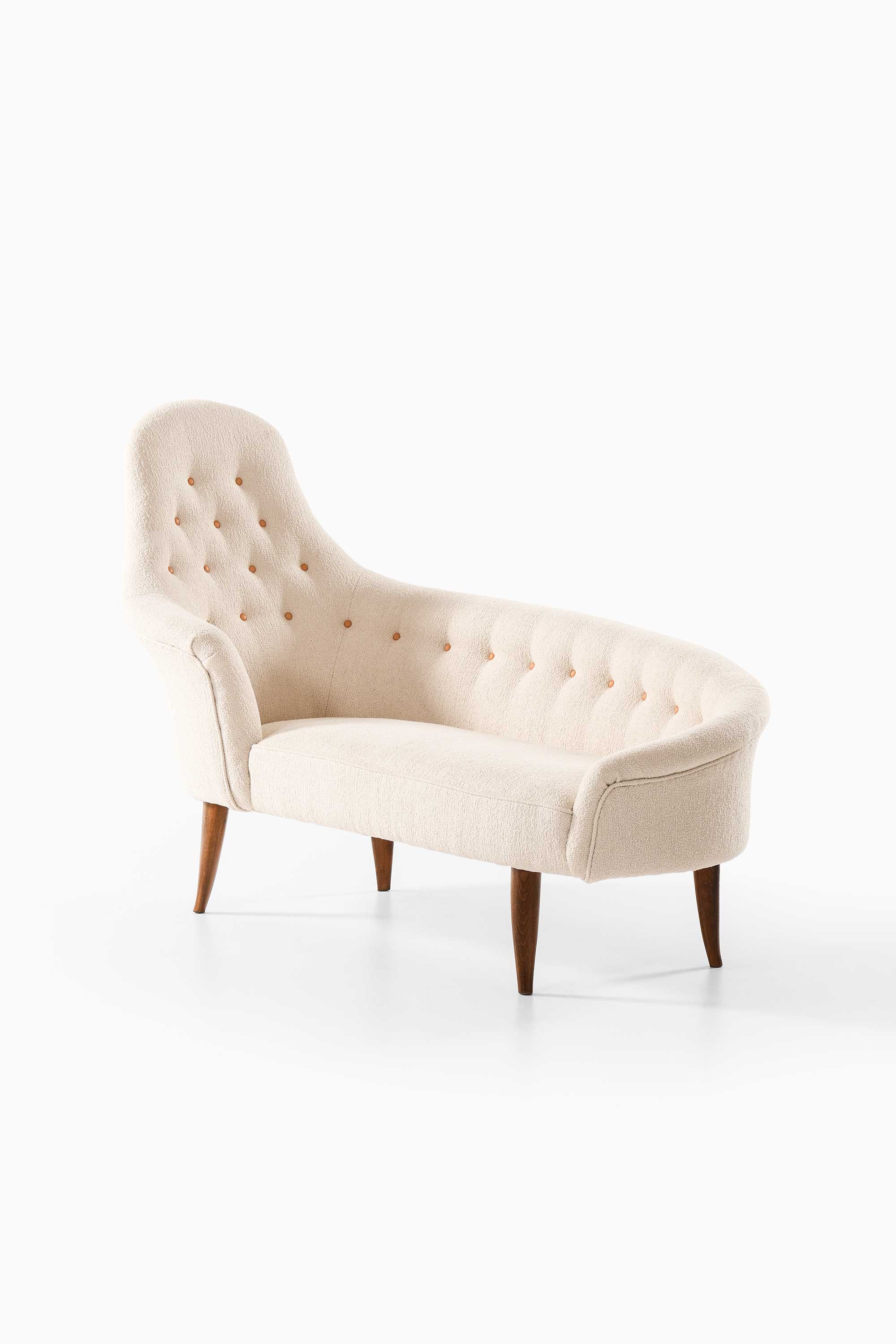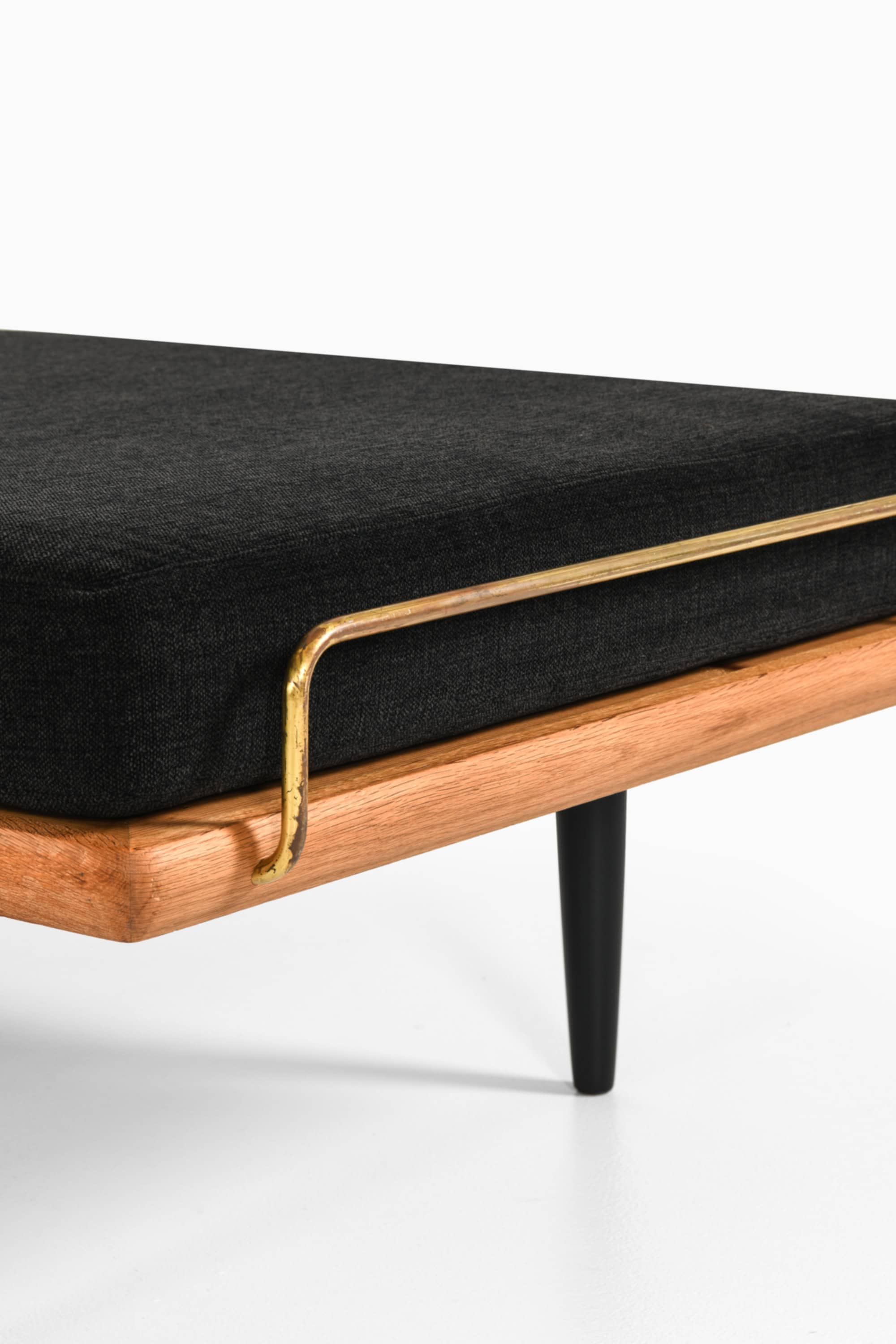Bengt Ruda daybed
The Paus daybed, designed by Bengt Ruda and produced in Sweden in 1958, stands as a refined example of Scandinavian modernist furniture—balancing function, clarity of form, and a deep respect for materials. As a notable figure in Sweden’s postwar design movement, Ruda brought an architectural sensibility to his furniture, often emphasizing structural expression, lightness, and a modernist embrace of simplicity without austerity. The Paus model is a rare and compelling piece within his body of work, showcasing the thoughtful innovation that earned him a place among Sweden’s foremost mid-century designers.
The daybed’s frame is constructed from a blend of teak and beech—two woods emblematic of Scandinavian craftsmanship. The teak, used for the horizontal structure and platform, is marked by its warm, golden-brown tone and subtle grain, lending a sense of richness and natural variation to the piece. The beech, employed for the sculptural V-shaped legs, offers a complementary hue and lighter visual weight, contributing to the elevated, almost floating appearance of the frame.
Ruda’s design emphasizes linearity and proportion. The rectangular frame is precisely detailed, with softened edges and clean joins that underscore the minimal ornamentation and quality of execution. The V-shaped legs are particularly distinctive: sharply angled yet delicately tapered, they provide not only physical support but also a rhythmic visual base that lifts the daybed off the floor, giving it a sense of modern lightness and architectural poise.
The mattress is upholstered in white canvas fabric, a choice that aligns with the Scandinavian modernist palette of natural, understated materials. The canvas offers a crisp and tactile contrast to the smooth teak surface beneath, and its neutrality allows the sculptural frame to remain visually prominent. The upholstery is in excellent condition, retaining its fresh and clean aesthetic, which enhances the overall clarity of the design.
Condition-wise, the Paus daybed has been well maintained. The wood exhibits a finely aged patina that highlights the richness of the teak and the clarity of the beech legs, with minimal signs of wear and no structural compromise. The overall preservation speaks to the craftsmanship typical of Swedish cabinetmaking during the 1950s, a period when quality was paramount, even in more minimalist designs.
Bengt Ruda (1918–1999) trained as both an architect and industrial designer and played a formative role in transitioning Swedish furniture design from traditional styles into the modern era. He worked with leading manufacturers and institutions and is perhaps best known for his ability to create pieces that are both sculptural and usable—objects that integrate seamlessly into modern life while asserting a strong visual identity. The Paus daybed is an excellent example of this ethos: refined in form, grounded in comfort, and elevated by its material expression.
Dimensions (cm) | W: 20 / D: 90 / H: 58.5 / Seat H: 43 |
| Color | White |
| Decade | 1950s |
| Country | Sweden |
| Style | Mid Century, Scandinavian Modern |
| Material | Beech, Canvas, Teak |
| Designed in | 1958 |
| Item Number | 225117 |
Bengt Ruda











